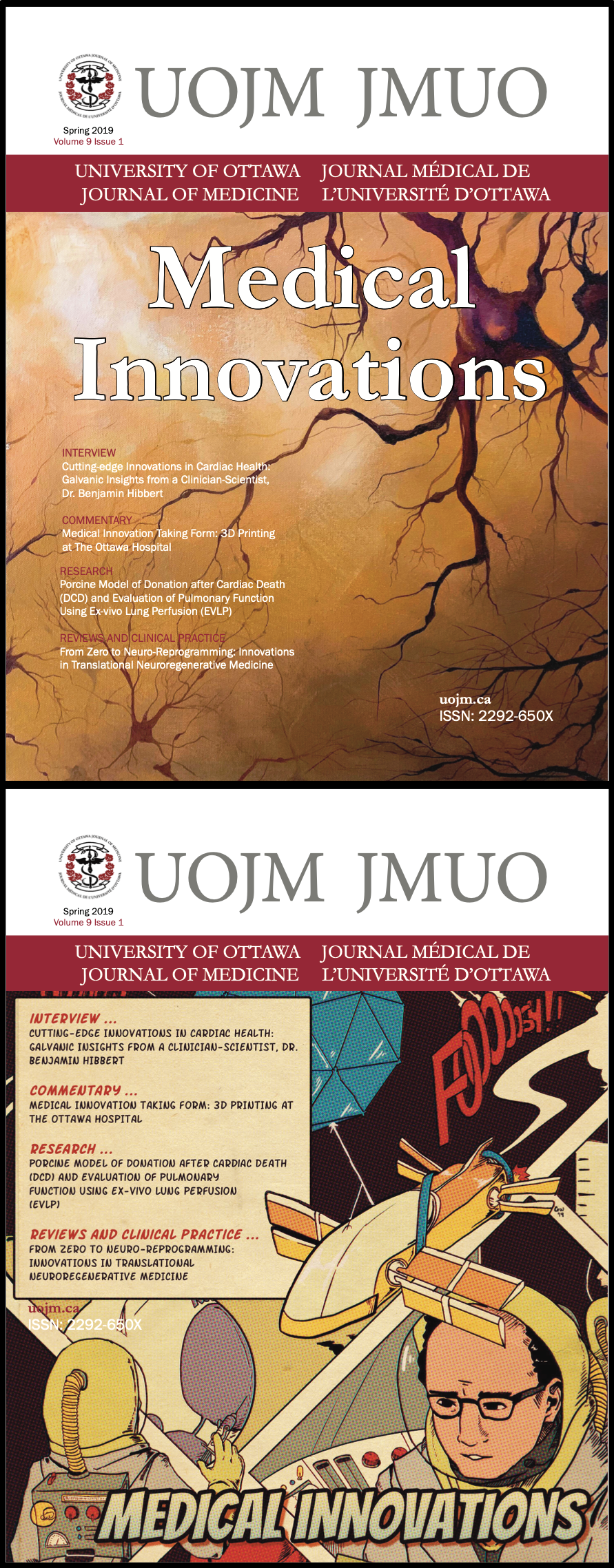From Zero to Neuro-Reprogramming: Innovations in Translational Neuroregenerative Medicine
DOI:
https://doi.org/10.18192/uojm.v9i1.4163Keywords:
genetic reprogramming, neural stem cells, translation, neurodevelopment, neurodegenerationAbstract
Acquiring live human nervous tissue for research presents ethical and technical constraints. As a result, clinicians and scientists resort to using animal models to investigate human neuronal development and degeneration. However, innate species differences in neurobiology have hindered the translation of disease pathologies and development of therapeutic strategies. The discovery of endogenous neural stem cells (NSCs) and their examination has been critical for neuronal development, degeneration and regeneration. NSCs can exist in different developmental stages, embryonic through adult, and possess the capacity to generate the various cells that make up the nervous system. Importantly, human somatic cells can be obtained non-invasively and genetically reprogrammed into NSCs providing an ethically viable source of stem cells for translational study and potential therapy. Novel methods to generate NSCs of various developmental origins and regional identities are rapidly evolving to provide safer, quicker, and more efficient reprogramming strategies. Reprogrammed NSCs share many molecular and functional attributes with their endogenous NSC counterparts and can be used for in vitro modelling at a large scale. The accessibility to study patient specific NSCs allows the causal inferences of human disease mechanisms that may be unfeasible to model in animals. Despite the novelty of this burgeoning field, the opportunity for translational discoveries in neuronal development and degeneration and for therapeutic applications is unprecedented. This review will highlight the advances in manufacturing NSCs and their translational implications for disease modelling and potential treatment of the nervous system.
Downloads
Published
Issue
Section
License
- Authors publishing in the UOJM retain copyright of their articles, including all the drafts and the final published version in the journal.
- While UOJM does not retain any rights to the articles submitted, by agreeing to publish in UOJM, authors are granting the journal right of first publication and distribution rights of their articles.
- Authors are free to submit their works to other publications, including journals, institutional repositories or books, with an acknowledgment of its initial publication in UOJM.
- Copies of UOJM are distributed both in print and online, and all materials will be publicly available online. The journal holds no legal responsibility as to how these materials will be used by the public.
- Please ensure that all authors, co-authors and investigators have read and agree to these terms.
- Works are licensed under a Creative Commons Attribution-NonCommercial-NoDerivatives 4.0 International License.


